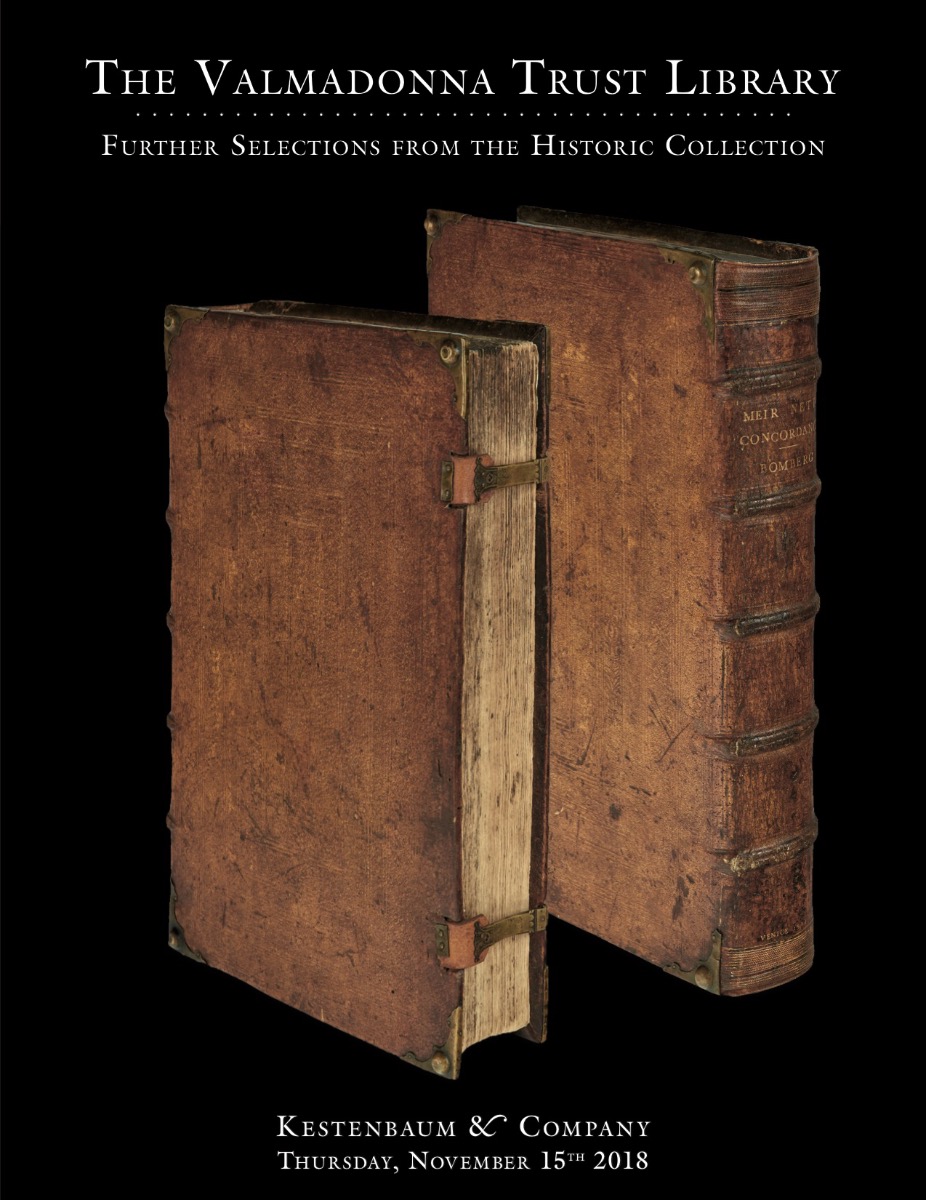Cohen, Mendes I. (1796-1879). Autograph Letter written to US President James Buchanan, in English.

AUCTION 79 |
Thursday, November 15th,
2018 at 1:00 PM
The Valmadonna Trust Library: Further Selections from the Historic Collection. * Hebrew Printing in America. * Graphic & Ceremonial Art
Lot 176
(AMERICAN JUDAICA)
Cohen, Mendes I. (1796-1879). Autograph Letter written to US President James Buchanan, in English.
Baltimore, : January 5th 1859
Est: $3,000 - $5,000
PRICE REALIZED $11,000
The celebrated explorer Mendes I. Cohen here writes to President James Buchanan regarding the Edgardo Mortara Affair. Cohen represents, “a large Body of your Fellow Citizens, Israelites of the City of Baltimore.”
This letter is a cover sheet for a Memorial, or petition, of prominent Jews in Baltimore, asking Buchanan to express his opinion on the Mortara kidnapping by the Roman Catholic Church in Bologna. Cohen writes that they are “satisfied that the Chief Magistrate of our beloved country… will feel himself at liberty to express his sentiments on an event which has astounded the whole civilized world.” This letter, along with the Memorial, signed by fourteen prominent Jewish citizens of Baltimore, was printed in Baltimore’s The Daily Exchange, January 25, 1859, pg. 2.
ᴥ Pres. Buchanan had been reluctant to get involved in the Mortara kidnapping, arguing that he must abide by the “principle of non-intervention on the part of the United States between foreign sovereigns… It is enough for us to defend the rights of our own citizens… wherever these may be assailed by the Government of any foreign country. Had Manola [sic; Momolo, Edgardo’s father] Mortara been a citizen of the United States, the case would have been very different. The Israelitish citizens of the United States have had occasion to know that I have not been regardless of their just rights in foreign countries; and they may rest assured that they shall receive the same protection, when domiciled abroad, during my administration, which is extended to all other citizens of our common country. They would ask no more and shall receive nothing less.” (See The Works of James Buchanan, Vol. X (1910) Letter to Benjamin W. Hart, January 4, 1859, pp. 283-84).
True to form, Buchanan's reply to the Mendes I. Cohen and his committee's petition, was to decline to make a statement or otherwise get involved, arguing that American non-intervention is essential, for otherwise it “would tend to embroil us with all nations. We ourselves would not permit any foreign power thus to interfere with our domestic concerns, and enter protests against the legislation or the action of our government towards our own citizens.” Although Buchanan acknowledged that the Mortara case is extremely sympathetic, he expressed his belief that this is all the more reason America could not get involved—it would create a precedent for humanitarian intervention that much stronger. One wonders if Buchanan’s fear of other nations inserting themselves into the United States’s affairs on moral grounds had to do with slavery, still flourishing in the antebellum American South.
